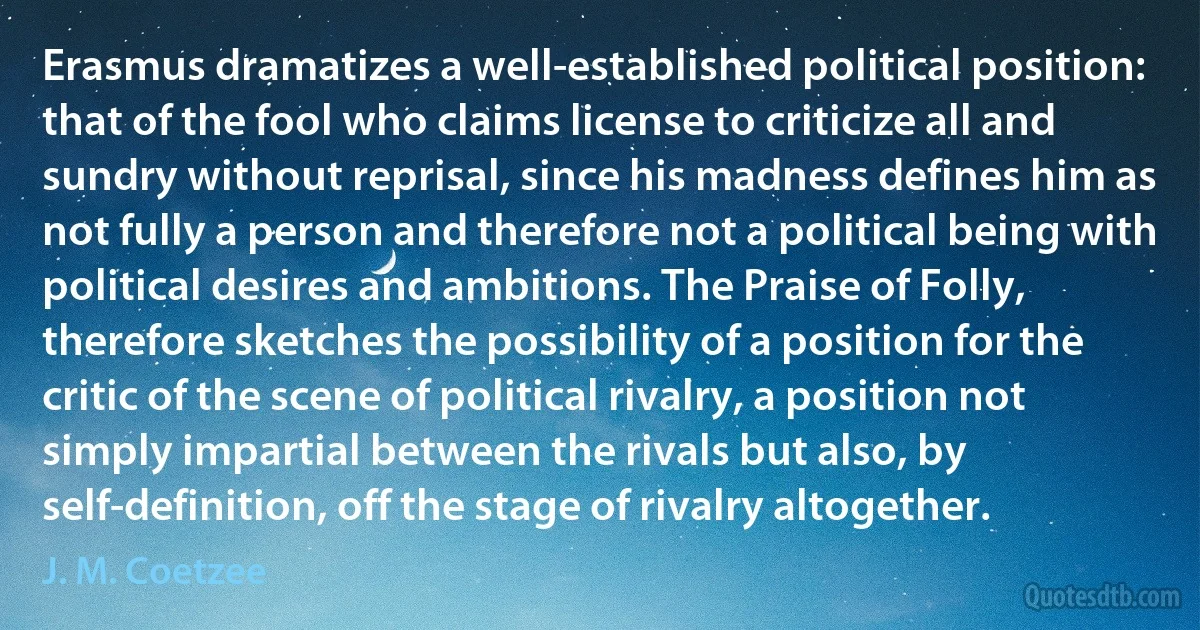
Erasmus dramatizes a well-established political position: that of the fool who claims license to criticize all and sundry without reprisal, since his madness defines him as not fully a person and therefore not a political being with political desires and ambitions. The Praise of Folly, therefore sketches the possibility of a position for the critic of the scene of political rivalry, a position not simply impartial between the rivals but also, by self-definition, off the stage of rivalry altogether.
J. M. CoetzeeRelated topics
folly fool license madness off person position possibility praise reprisal scene sundryRelated quotes
Sir - In finding so much to praise in 'Entertaining Mr. Sloane,' which seems to be nothing more than a highly sensationalized, lurid, crude and over-dramatised picture of life at its lowest, surely your dramatic critic has taken leave of his senses.The effect this nauseating work had on me was to make we want to fill my lungs with some fresh, wholesome Leicester Square air. A distinguished critic, if I quote him correctly, felt the sensation of snakes crawling around his ankles while watching it.Yours truly,Peter Pinnell.

Joe Orton
Thus shall the Spiritual Thirst of Christ have an end. For this is the Spiritual Thirst of Christ: the love-longing that lasteth, and ever shall, till we see that sight on Doomsday. For we that shall be saved and shall be Christ's joy and His bliss, some be yet here and some be to come, and so shall some be, unto that day. Therefore this is His thirst and love-longing, to have us altogether whole in Him, to His bliss, - as to my sight. For we be not now as fully whole in Him as we shall be then.

Julian of Norwich
If the amount of money going into the war economy were invested in landscape restoration, we would be in a far more positive position. It may get a little dire before we pull together, but I think when the prosperous nations, and in particular the US, realise they're wrecking their own kids' lives, there will be a mass change in value. It will be a difficult century, and ugly, but I don't think that in the end people are so stupid as to kill themselves off.

Kim Stanley Robinson
Cooking professionally is a dominant act, at all times about control. Eating well, on the other hand, is about submission. It's about giving up all vestiges of control, about entrusting
your fate entirely to someone else. It's about turning off the mean, manipulative, calculating, and shrewd person inside you, and slipping heedlessly into a new experience as if it were a
warm bath. It's about shutting down the radar and letting good things happen. Let it happen to you.

Anthony Bourdain
When modernist poetry, or what not so long ago passed for modernist poetry, can reach the stage where the following piece by Mr. Ezra Pound is seriously offered as a poem, there is some justification for the plain reader and orthodox critic who shrinks from anything that may be labelled 'modernist' either in terms of condemnation or approbation.... Better he thinks, that ten authentic poets should be left for posterity to discover than one charlatan should be allowed to steal into the Temple of Fame.

Laura Riding
